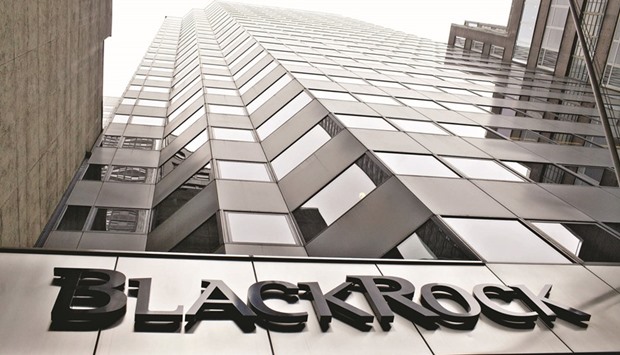As foreign investors flee Tokyo stocks, the world’s largest asset manager says the move by the Bank of Japan (BoJ) that spooked the market will be one of the main things that pushes it back up.
BlackRock is bullish on Japanese shares even after this year’s equity rout sent the Topix index into a bear market. The central bank’s decision at the end of January to adopt negative interest rates punished banking shares, sending the market to a 15-month low on February 12. But that and other stimulus measures will hold down the yen and help boost corporate earnings, said Russ Koesterich, global chief investment strategist at the $4.6tn money manager.
“We are overweight Japanese equities,” Koesterich said in an e-mailed response to questions. “The BoJ’s negative interest rate surprise, in addition to the existing quantitative easing programme, should keep a lid on the yen in the near term and buoy exporter earnings, which are expected to be ahead of other developed markets.”
The Topix surged 8% last week, its best performance in six years. The gauge added 0.6%, and is still down 16% for 2016.
Foreigners have sold Japanese shares for six straight weeks as the strengthening yen and concern about the growth of the global economy have turned Japan into one of the most turbulent markets worldwide. Overseas investors, which account for about 75% of the trading value for Tokyo’s stocks, have sold a net ¥2.24tn in shares since January 4 while short-term volatility surged to its highest in five years.
The yen is seen as a haven destination, and with equities tumbling across the global this year, investors have sent the currency up more than 6% to about 113 per dollar. Against that background, the BoJ’s negative-rate policy has so far backfired, with the yen climbing further and bank stocks plunging.
Koesterich isn’t alone in his belief negative rates will help hold the yen lower. Nomura Holdings is sticking to its forecast that the yen will fall to 130 per dollar by the end of this year on the view that the BoJ’s policy will prompt investors to buy more foreign assets and US borrowing costs will rise. Nomura predicts the Nikkei 225 Stock Average may surge to as high as 22,000 at the end of the year, 38% higher than Friday’s close.
Masaru Hamasaki, head of the investment information department at Amundi Japan, says that as long as the yen remains weaker than 110 per dollar, Japanese companies will be able to sustain profits, leading to higher share prices.
A combination of lacklustre domestic growth and dissatisfaction with the latest round of monetary easing is strengthening views that the central bank will take further action. But Koesterich says the BoJ can’t rely on weakening the yen solely through monetary stimulus, particularly with the Federal Reserve considering delaying further interest rate increases.
“How long can the BoJ suppress the currency in the face of a potentially more patient Fed, especially when the yen is a popular safe haven amid oil-related panic?” Koesterich said. “For Japan’s reflation strategy to work, loose monetary policy alone is not enough. Fiscal policy and private sector wage gains have to play a role to support domestic demand, and offset the higher import prices resulting from a weak yen.”
He said this spring’s wage negotiations will provide a key clue on whether consumers can support domestic demand.
Koesterich says Japan equities also remain attractive thanks to relatively low valuations.
With the selloff in the Topix, shares were recently trading at book value, the lowest level since the early days after Prime Minister Shinzo Abe took power in late 2012.
The Topix doubled over the next three years, helped by the administration’s weak-yen policies that spurred record corporate profits.
The measure is now trading at 13 times estimated earnings, compared with 16 times for the Standard & Poor’s 500 Index and 14 times for Europe’s Stoxx 600 Index.
Among Abenomics reforms that are working, Koesterich points to corporate governance improvements that have helped increase return on equity. Japan’s adoption of a code to encourage investors to push cash-hoarding companies for better returns has boosted ROE to 7.75% from 4.1 in December 2012.
“Besides relatively attractive valuations, return on equity has consistently improved due to positive corporate governance changes,” Koesterich said. Japanese shares still provide “attractive relative value and continued aggressive stimulus is supporting earnings.”

The headquarters of BlackRock in New York. BlackRock is bullish on Japanese shares even after this year’s equity rout sent the Topix index into a bear market.
